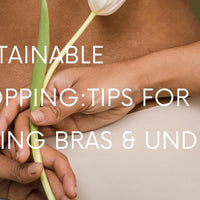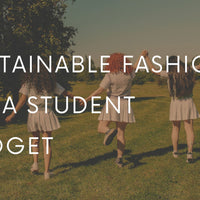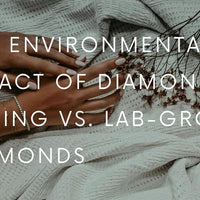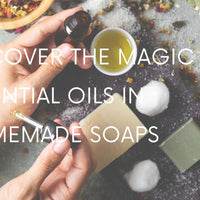Environmental problems can feel overwhelming at times but remember every bit counts and little things really do make a big difference. If you don’t believe this then try sleeping with a hungry mosquito in the room.
1. Invest in a water bottle
A staggering 50 billion single-use plastic water bottles are bought each year! Plus the plastic used in these bottles are full of BPA’s and potentially harmful chemicals that you’re putting in your body, especially when left in the sunlight. Purchase a re-usable water bottle and get in the habit of always bringing it with you.
2. Keep a cutlery set in your bag
There have been countless times when I’m out and about and some amazingly delicious smell from a takeaway shop wafts over and completely catches my hunger off guard. Keep a set cutlery in your bag and you’ll never have to use single-use plastic cutlery again. If you know you’re going to buy some takeaway lunch or dinner bring a container from home and ask them to use that instead of a disposable plastic one.
3. Carry a keep cup
Australians use 1 billion disposable coffee cups each year!
Purchase a re-usable coffee cup or if you forgot one, ask to have your coffee in the store. When did our lives get busy? It’s very easy to get swept up by the daily grind, spending each waking moment rushing from one task to another. Take the time to stop, sit down in the coffee shop and indulge yourself in the precocious moment of a freshly made coffee. Take the time to really taste the coffee, appreciate its smell and the warm fuzzy feeling it creates within you. The universe will survive if you’re 5 minutes late.
4. Ask for no straw in your drinks
500,000,000 straws are used every day in the US alone! You read that number right! Say only 1% of these end up in the ocean, that’s 5 million straws into the ocean every day from one country! Many bars, restaurants and take-away places automatically put a straw in your drink so get into the habit of asking for no straw with each drink you purchase. Either drink your beverage without a straw or invest in a stainless steel or bamboo one.
5. Keep a fold-up re-usable bag in your pocket, bag or car
Make this a habit and you will never be caught off guard without a shopping bag. If you do drive to the supermarket and realise that you’ve forgotten your bags just put all your groceries straight into the trolley, wheel the trolley to your car and unpack your groceries straight into the boot.
6. You don’t need plastic bags to line your bin!
This is probably the most used argument people use to justify why they need plastic bags. Instead of this, put some newspaper at the bottom of the bin to soak up any liquids and then just dump your rubbish straight in there as normal. When your kitchen bin is full just tip all that rubbish straight into your street bin and then wash out your kitchen bin with a hose. If your bin is not made of solid plastic or metal and does need bin liners purchase some reusable bin liners instead.
7. Start a veggie patch
Gardening is one of the purest and most overlooked human pleasures. There is something so special about nurturing a seed and creating new life. Make use of the spaces you got! Even if you live in an apartment you can still put little herb or veggie pots on your windowsill or balcony or start a veggie patch on the grass outside your house or apartment on the street. Or you could join a community garden!
8. Start a compost bin or a worm farm
A great way to get some incredible nutrient-rich soil for your veggie patch is with a compost bin. There are some beautiful, compact, odour-free worm farms that fit perfectly into your kitchen if you don’t have a garden or huge compost tumblers for households that create a lot of food scraps and have the space.
9. Use your containers to refill
When you’re at the shops try to purchase products in glass containers instead of plastic, for example with honey, tomato sauce or other condiments. However, if you do end of with these containers instead of throwing them away re-use them for re-fills or food storage. Empty hummus container? Try making your own hummus or go to a deli ask them to use that same container.
10. Buy loose leaf tea
Tea is beautiful, but buying tea bags adds a lot of waste: from the tea bag itself, to the tea labels and most importantly the fact that most tea bags all come individually wrapped within the packet. Invest in a metal tea strainer and purchase loose leaf tea instead of tea bags. This not only saves waste, but loose leaf tea often has a stronger flavour, means you are putting less unknown substances into your body, and also saves you money, with loose leaf tea on average 2.5x cheaper than tea bags.

11. Seek out plastic free grocery items
Purchase bread in a paper bag from a bakery, buy beans, grains, seeds from a bulk scoop place, bring your own containers to delis, make your own muesli bars or snacks, don’t purchase fruit wrapped in plastic and make your own DIY cleaning products. Who gives a crap is a great toilet paper company that uses no plastic and donates 50% of its profits to building toilets in the developing world.
12. Choose clothes made of natural fibres
This one is a little hidden killer. Did you know that when you wash synthetic clothing tiny fibres make their way from your washing machine into the oceans to then be eaten by animals. A single acrylic garment can release nearly 730,000 tiny synthetic particles per wash!
Purchase clothes made of natural fibres such as organic cotton, bamboo or hemp.
Also let your clothes dry naturally instead of using a drier. If you have some synthetic clothing, wash these fabrics in a special bag designed to trap them.
13. Cut down on the Uber eats/takeaway delivery/frozen convenience meals
This is a hard one for many people. I know Uber Eats or that frozen lasagne is amazing for those tired nights in, but all that food comes in plastic disposable containers. Instead enjoy cooking a meal, or prepare some meals in advance that you can defrost easily for times like these. You could also go out and eat in at the restaurant instead. If you do have to order takeaway keep the containers and use them to store food, to prepare homemade frozen meals or as a spare container
for a lunch on the go.
14. Swap plastic out everywhere!
Did you know that every toothbrush that has ever existed still exists today! There are many innovative and sustainable businesses out there who have created plastic free alternatives for many products: bamboo toothbrushes, bamboo pens, bamboo phone cases, plastic-free deodorant and toothpaste, paper-stick cotton swabs, coconut fibre kitchen and pan scrubbers, vegan wraps, a diva cup instead of pads or tampons, cloth nappies instead of disposable ones, soap, shampoo and conditioner bars instead of bottles... the list goes on!
15. Think holistically
Although plastic is a significant problem, it is only one part of a much bigger problem. To live a truly sustainable life you can’t just improve one area. Instead, it is a complete transformation and connection of all parts of your life together to ensure that what you purchase, what you put on and into your body, and what you create have a positive impact for all living beings, all future beings and planet.
- So some other things to think about -
• Did you know that the single biggest impact on climate change is actually the meat and dairy industry? The simple act of reducing your meat and dairy consumption has a huge and instant impact on reducing climate change (going vegan alone on average cuts your total emissions by half). Red and processed meats are known carcinogens so cutting these out also creates a healthier diet and saves real animal lives.
• Many well-known skin care, make-up and body products actually contain
a heap harmful and known carcinogenic chemicals, parabens and numbers, or use unsustainable palm oil (check those fine print ingredients). There are some apps out there that help you look up those nasty chemicals and identify if their harm index, but the safest bet is to make the switch to organic and natural products.
• Cycle or walk to work, car-pool or get public transport. 4/5 of cars driving in peak hour traffic contain only 1 person. This is a huge waste of resources and makes traffic significantly worse.
16. Inspire others
We are all in this together. Just one person making a positive switch to live a sustainable life can inspire so many more. Encourage and inspire each other, contact businesses who use excessive packaging, lead by example and give your friends these handy tips. We should all be so proud of the efforts we are making and work together to ensure our planet stays beautiful.

About the author: Jacinta Bowman is passionate about living a sustainable and planet-friendly lifestyle and loves to inspire others to do the same.








0 comments